
Please install a more recent version of your browser.
17 December 2020
5 minutes read
Exploring and transcending boundaries typifies dancer and choreographer Alexander Vantournhout. He promotes hybrid art forms and flirts with the codes of the circus, his first love. As a body artist, he writes his own story, as spectacular as it is subtle. He links theatre and circus to dance, averse to all conventions. This journey takes his growing professional company Not Standing to major European stages.
Wil je op de hoogte gehouden worden van nieuwe artikels in dit magazine? Schrijf je in op onze nieuwsbrief!
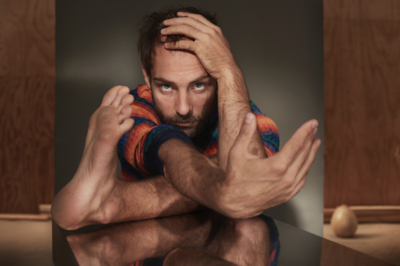
© Dennis & Did
Out of necessity. In my youth, I practised gymnastics 18 hours a week. When the club went bankrupt, I did judo, street dance and circus. That’s how I discovered the body’s ability to adapt. I went to the School of Circus Arts when I was 18, and after a wrist injury, attended P.A.R.T.S.
We’re more malleable than we think.
It was also a period of doubt. It took me quite a long time before I dared call myself a dancer. After I completed my training, that changed, and I said to myself: I’m going to be an artist and evolve as an artist.
My whole life, I have been attracted to different forms of movement at the same time. Actually, I don’t want to have to choose. Why should I limit myself to a single discipline? I’m more of a generalist than a specialist. I believe in a multidisciplinary approach, but I am not a fan of the term, because, in my experience, everything is one. Two hundred years ago, all art forms were mixed. The term ‘multidisciplinary’ is only a reaction to pigeonhole thinking.
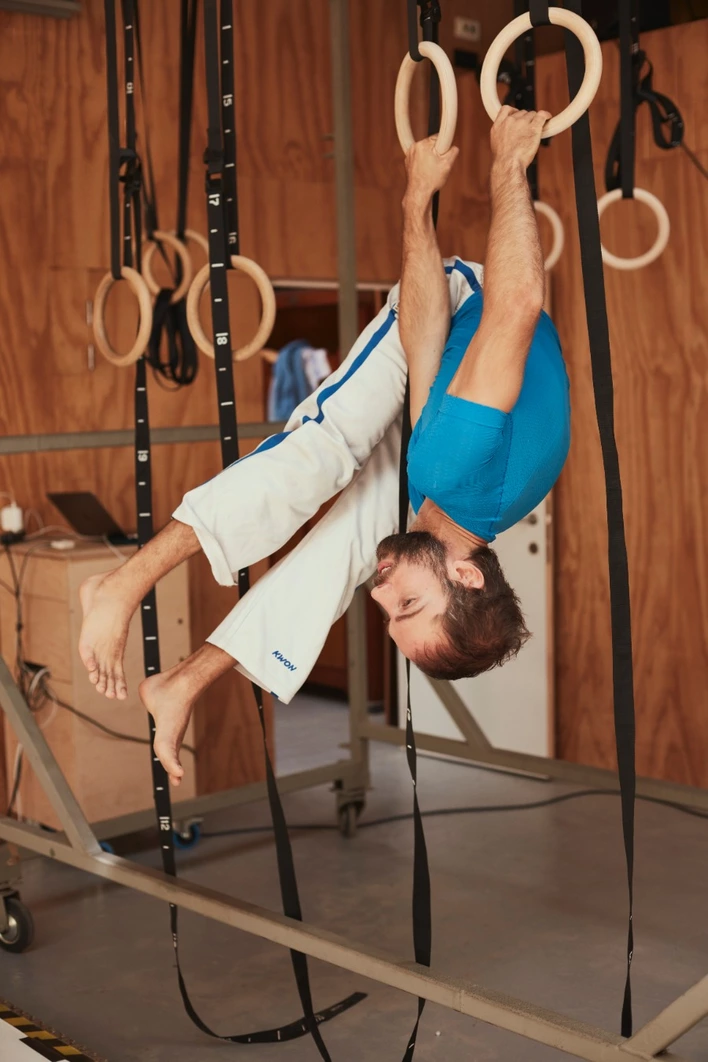
© Dennis & Did
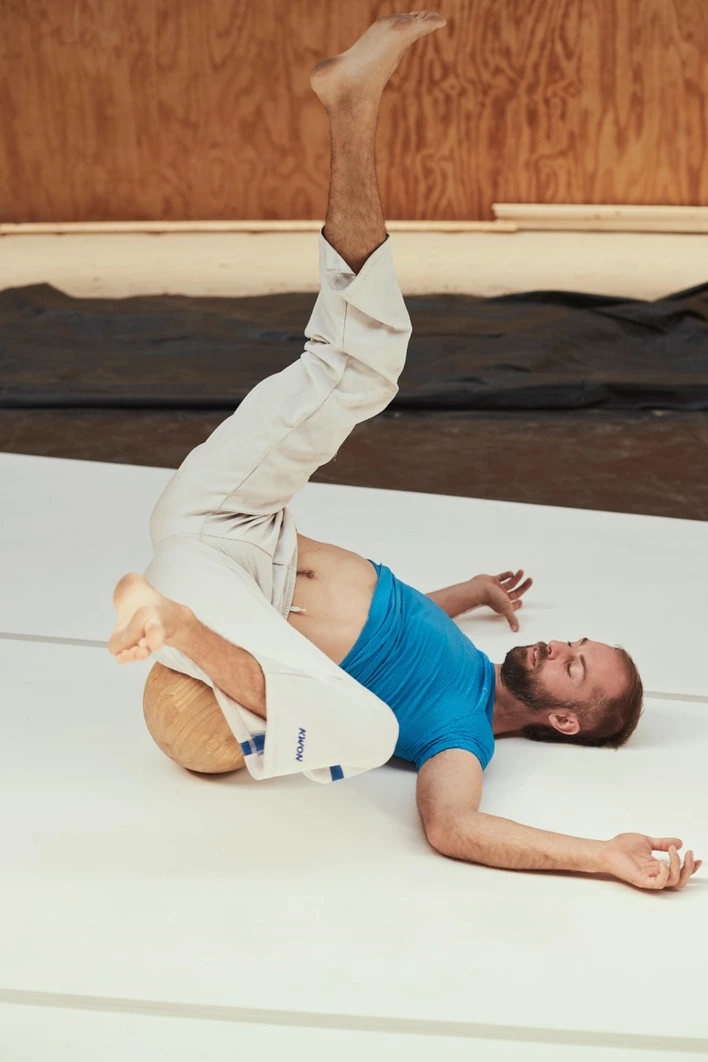
The term certainly is. But the circus has always been around, without being called that. Flanders, however, was slow in accepting circus as a ‘mature’ art form. Fortunately, that is changing. The boundaries are being broken down, the programming at leading festivals is getting broader. Circus is one genre, but it can also be puppet theatre or breakdance or hip hop. Art disciplines feed each other. That is why I feel so at home in the Parisian CENTQUATRE, the most progressive theatre in Europe. It’s an open space, where students and breakdancers rehearse, actors recite lyrics, and so on. It’s an amalgam, where each person respects the other.
I didn’t find any pieces I wanted to commit to because I didn’t feel enough like a performer. Hence the solos in the beginning. So it was more of a necessity.
I am fully in the process of developing as a choreographer and want to create my language using my own methods.
It’s a long journey that requires focus and takes time, because you can’t just learn it. I want to ask questions, explore and understand the body.
It’s a highly expressive piece in which I play with my own proportions. I have short arms and legs, while my upper body is very long. I wear 12-centimetre platform soles and gloves to lengthen my legs and arms. On the one hand, you try and improve your body, while on the other hand, you create something that is biomechanically incorrect, so that movement fails. That tragicomedy is what appeals to me. Like ointment and salt on the wound. The performing arts are rather like forced entertainment. A performer draws a spectator into a story.
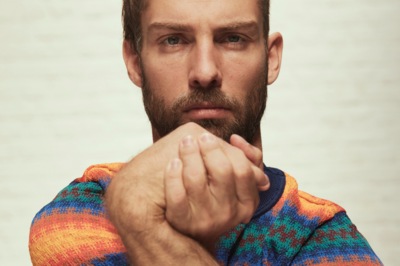
© Dennis & Did
The international experience actually led the way. I appreciate how France follows my work. Hybrid productions are more accepted there. In Flanders, the circus label meant that doors remained shut. Until recently, not many arts centres programmed circographic work. Belgium obviously has a well-known generation of performing artists who grew up in the 1980s, to whom we owe so much and whose stage language dominates. If you do something that deviates from that, very quickly you will find it is no longer considered dance.
What attracts me is that you have to analyse and defend a performance in a different way. On the basis of a different frame of reference each time. In some countries, a performance is perceived very differently.
Abroad, you have to be able to adapt like a chameleon.
A French audience is not a German audience, and in England or Asia, being naked on stage is a problem. I experienced this with ANECKXANDER, in which I expose myself both literally and figuratively. It helps you reflect on how you can make it less explicit. These experiences make you vulnerable, but also sharp.
It’s not to be underestimated. The agency has been guiding me since the very beginning. It’s partly thanks to them that my international career got off to a flying start. They also have Les ballets C de la B, Circus Ronaldo, Peeping Tom and Miet Warlop under their wing. Because they work for several companies, they have a broad network from which all the artists in the portfolio can benefit.
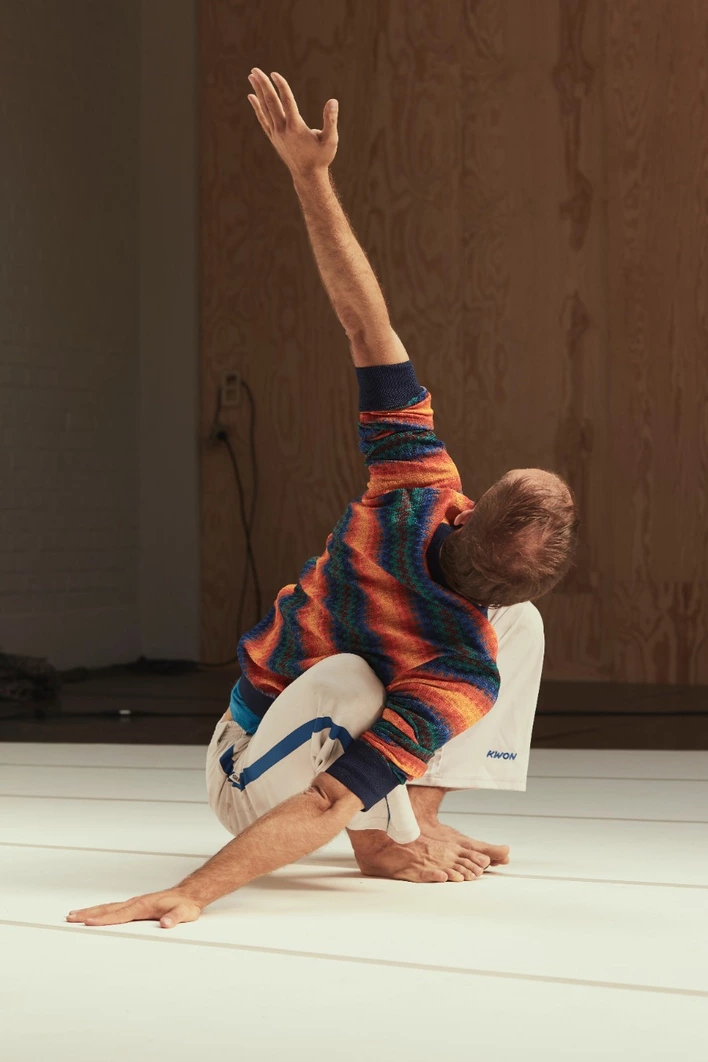
© Dennis & Did
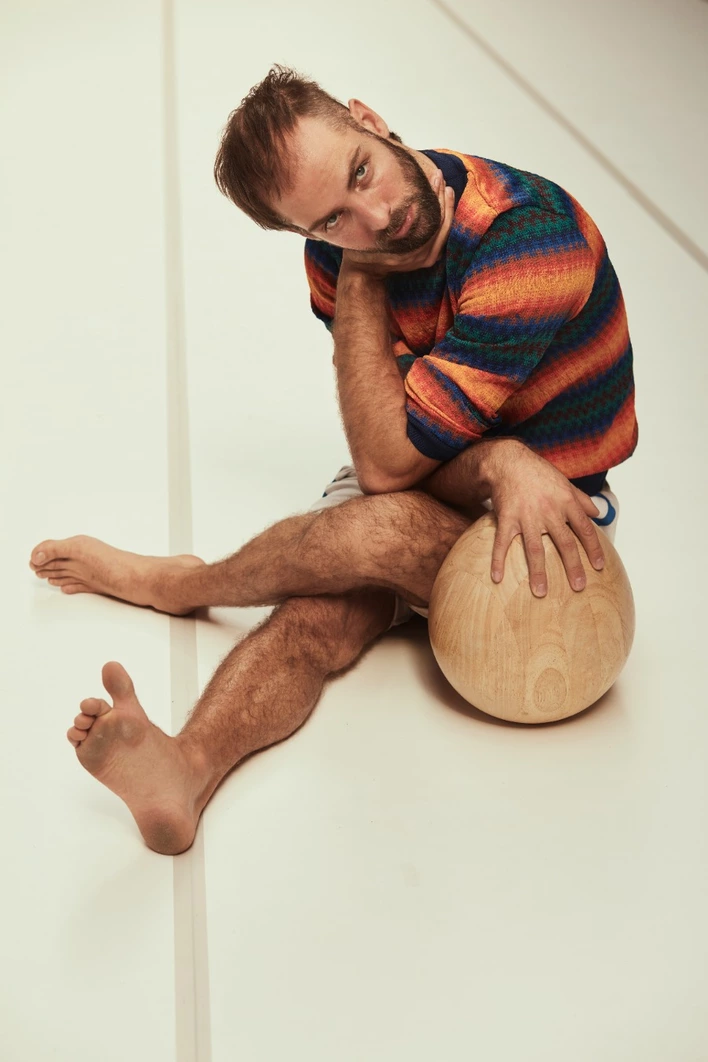
Since 2018, we have been producing more group performances. At times, my own role was less prominent. This resulted in the need for a company name. For the time being, we also keep my name in the productions, because it provides a certain degree of familiarity. The need for professional support grew simultaneously with this scaling up. Performances at home and abroad are increasingly demanding and sometimes involve other administrative obligations. Although I don’t avoid the business aspects, our structure allows me to focus entirely on the creative side.
Her skills make a big difference. She joined us in early 2019. She had previously worked as director of CC De Schakel in Waregem for 12 years. Her years of experience meant she was soon able to make us more professional. In addition, she has an extensive network in the Flemish cultural sector.
Project grants are indispensable for producing quality performances. We also use our own resources, through co-productions, the Tax Shelter and patronage. In addition, we received a pre-structural grant from the Flemish Community in 2018 for two and a half years to make our company more professional and provide socio-economic security. In fact, it’s a lever, so I no longer have to jump from one interim contract to another.
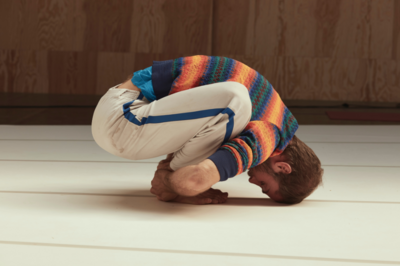
© Dennis & Did
Cookies saved